Russell Brand & the Emperor’s New Clothes, or “Did You Ever Hear Such innocent Prattle?”
Russell Brand – Revolution, Penguin/Random House, 2014.
Russell Brand – The Trews. https://www.youtube.com/user/russellbrand
Russell Brand – The Messiah Complex World Tour 2013.
Pretty much everyone knows the story of the Emperor’s New Clothes, even if they don’t know it was a Hans Christian Andersen story first published in Copenhagen in 1837. The Emperor is told by two fraudsters that there is a fabric – the greatest fabric of them all – which has the exquisite property of sorting the clever and wise from the stupid and foolish, and those who are fit for their position or place in the world from those who are not; for the latter, the stupid and unfit, cannot see it at all, while for the former, the clever and properly placed, it is the most finely spun, best cut, exquisitely coloured weave of silk and gold. Not, he takes it, being stupid, and being supremely fit for his position – and so desirous of knowing those in his realm who are stupid and ill-placed – the Emperor has a suit made up, which he then shows off to his ministers and to his public. His train proudly held high by his retinue he walks the streets while his people cheer and applaud as he passes them by, for none are willing to appear stupid to anyone else or to themselves, nor to contemplate the disquieting possibility that they are unfitted for their position in the world.
The Emperor’s new clothes are a singular and shared triumph of haute couture of a kind that Yves Saint Laurent, Chanel or Christian Dior could only dream about, and very probably did. And then a little child – too young, perhaps, to feel the pull of conformist validation contained in the conventional wisdom of the world, and not yet pigeon-holed into their place in the world – cries out in astonishment, “But he hasn’t got anything on!” The child’s father anxiously tries to restore the status quo: “Did you ever hear such innocent prattle?” But: one person whispered to another what the little child had said, ‘He hasn’t got anything on. A child says he hasn’t anything on.’
“But he hasn’t got anything on!” the whole town cried at last.
The Emperor shivered, for he suspected they were right. But he thought, “This procession has got to go on.” So he walked more proudly than ever, as his noblemen held high the train that wasn’t there at all.
I suppose most of us have a certain idea or image of the Emperor, adorned in his imaginary finery, but think now of the astonished little child. Visualise that child. Look at that child. What do you see? You see Russell Brand, and what he is speaking or telling you is The Trews. That is, what the news would be – and would be telling you – if it were true.
***
We know (don’t we?) the haute couture he calls out. The high fashion of neoliberalism with its purposeful tailoring of rising – indeed incredible – inequality, dressed in the truth defying finery of universal well-being, enclosed in its neoconservative accoutrements of a security apparatus that nips and tucks our freedoms into a form fitting, action restricting, garment supposedly tailored, like an adult diaper, for security “at all costs.”
Like any haute couture, our neoliberal and neoconservative fashion is naturally at home – is naturally suited for – the elite circles of the richest and most powerful, as the Emperor’s fine clothes are suited for him. But fine clothes and immaculate tailoring are nothing at all if they do not incite admiration and wonder and – of course – a definite, gratifying, hint of envy. If they do not do that, then they may as well not be there, not be worn, at all. They must be seen, and being seen, desired. And so they must be – as the Emperor’s clothes certainly were – in some real sense, available to all who desire them. As it were, the haute couture of the elite must be the desirable prêt-a-porter of the rest of us. A ready to wear facsimile in which we might wrap ourselves in tribute to our betters, acknowledging their superior wisdom and place in the world as we reaffirm our own lesser place, and so claim a share in their pretentions and pretentiousness.
***
It is this shared nakedness of an imaginary finery that our own little child pricks almost every time he opens his mouth, and it is what makes Russell Brand both one of our best comics and perhaps the most interesting “social activist” running around. It is this capacity – more a matter of character than anything else – to see what is there, before all our eyes and in our lives, but which is hidden from us by our desperate desire to fit in, not simply with the status quo, but with the rich and powerful who champion it. And so we, like they, celebrate its finery with all the resources of the corporate state we have, like an iron cage, constructed for ourselves.
So – to take just a few examples of those things he discusses in his book, Revolution – we take it we live in democracies when, given the chance, most of us don’t vote, and when we do, console ourselves with a “lesser of two evils” mantra that works, if at all, only on the margins of a juggernaut going the other way. We fight “terrorists” by creating more of them, and not only “over there,” but here, at home, and we create them too in our security agencies, so that even the President of the USA sits down weekly and decides who to obliterate among all the collateral damage of women and children and honest men everywhere. We mindlessly consume when we know it’s a temporary buzz, driven by an exhibitionist conformity we celebrate as self-expression and connectivity even as it empties our lives and pollutes our planet, the airwaves and our minds. We are children of the Enlightenment who now torture, murder, imprison without due process, indeed any process at all, in the name of defending freedom and universal human rights we blithely deny to whole swathes of the earth’s peoples. We are masters of the earth who are destroying it before our eyes, and who defend ourselves from our madness by undermining and attacking that very science, that very reason, we claim as our distinguishing mark. We are masters of our fate committed to idea that there is no alternative to the increasing misery and horrors our society brings us. We are loving parents who actively collude in the degradation and destruction of our children’s future; sentimentalists who are not merely constructing hell on earth for our children and grandchildren, but who are, it seems undeniable, if unadmitted, prepared to trash that very civilisation we claim as our gift to all.
***
In Hans Christian Andersen’s story the whole town ends up proclaiming the Emperor’s nakedness, while the Emperor and his courtiers go on ever more proudly in their delusionary truth, their naked world of an imagined haute couture of silk and gold. It is not a comforting ending, but it is instructive as a warning, if only because, as our own little child points out, it is our reality, and even more so since the Global Financial Crisis of 2007/2008 that saw even the Emperor glimpse, for a moment, his own nakedness. I mean here the High Priest of neoliberalism, the Head of the US Federal Reserve at the time, Alan Greenspan, who, in 2008, told the Congressional Oversight Committee:
I made a mistake in presuming that the self-interest of organisations, specifically banks, is such that they were best capable of protecting shareholders and equity in firms… I discovered a flaw in the model that I perceived is the critical functioning structure that defines how the world works.
The “flaw in the model” that he “perceived” was, of course, that it was not there at all, but like the Emperor in Andersen’s tale, Greenspan merely shivered and thought, “’this procession has got to go on.” And he, and his fellow noblemen, as we know, went on as before “more proudly than ever.”
Of course – and this is implicit in the original tale – this was only possible to the extent that the watchers allowed themselves to fall back into that delusion and denial the little child’s father anxiously invoked when he denounced his off-spring’s words as “innocent prattle.” They might, for a moment, have cried, “But he hasn’t got anything on!” But it was not something they could continue with, or live up to, in the face of the insouciant denial of their betters in wisdom and worldly position.
***
This is true, too, of so many of us today, and especially true of those who claim to speak the truth on our behalf. For while it is only to be expected that those who man the Imperial Court will collude in the willing fiction that their self-serving nakedness is the height of haute couture, it is the claim of our media figures, our commentators and journalists, to tell us how things really are, to hold wealth and power accountable, to fearlessly speak the truth to power.
So what is it we find here? Well, we find that here our little child, Russell Brand, provides one of his most useful services; for he is pretty much an infallible sorting device for separating those who are worth listening to and those we can safely mark off on our card as instances or exemplars the “conventional wisdom” that implicitly triumphs in Andersen’s tale. These are the people who, hearing the child’s words, turn and hiss at him to shut up and be quiet. He is the stupid one, the one who does not know his place, and so he must be put in his place by the clever and the rightfully placed. Indeed, putting him there is the mark of one’s own cleverness and position. He is not a Very Serious Person, he is not Man of Reason, he is, says Hadley Freeman of the Guardian (“Britain, don’t put your faith in Russell Brand’s revolution”, October 24, 2014), first off the mark in reviewing Revolution, “a hirsute revolutionary leader… mad with power”. Though it is, she hastens to add, lest we be concerned, an empty, naked, power, for “[SPOILER!] revolution is not going to happen”. Next off the blocks, the Observers’ Nick Cohen, (“Revolution by Russell Brand Review – the barmy credo of a Beverley Hill Buddhist”, October 27, 2014) following up on the triumph of his Christopher Hitchens-style lurch into neoconservatism and Islamophobia, charged that it was Brand, not he, who was “discrediting the left”. The there is the Guardian’s Deborah Orr (“Russell Brand might be better off actually trying to help the dispossessed”, November 1, 2013) – “one of Britain’s leading social and political commentators” – who thinks he, like her, should be really out there helping the less fortunate, perhaps by writing a column for the Guardian telling the child to shut up about all the nakedness. And, anyway, if there is any nakedness here, it is his fault. For it is his “insisting on our right to have no empathy for politicians” that means “we get… empathy lacking politicians.” (Brand’s power, it seems, both isn’t real and most assuredly is.) Or the Daily Mail’s discerning and subtle Craig Brown (“Rambling, half-baked, shifty and unpleasant: Russell Brand’s Yawny Wawny Book Wook”, October 26, 2014) who knows – just knows – that if Penguin Random House publish your book “Revolution” then you are a lying hypocrite who can’t really be “anti-establishment” (and besides, he’s “just a precocious 12 year old”). And then there are the prêt-a-porter wannabees, like the Daily Beast’s delicious Mike Moynihan (“Russell Brand’s Revolution for Morons”, November 2, 2014), champion of the “occult, fascism, and Social Darwinism”, who manages the revealing feat of finding in Revolution not only “a revolution for morons”, but empty of even “a single laugh”, which is rather like failing to find the breasts in Naked School Girls Follies. And – not to leave Australia out of this – there is the Sydney Morning Herald’s wonderfully named Richard King (“Russell Brand packages narcissism as politics”, January 12, 2015) whose seriousness demands that obvious things – grotesque and rising inequality, empty democracy, and so on – can’t simply be pointed out – that would be “empty narcissism” (of the kind, presumably, exhibited by anyone who cries out “why am I being hurt?”) – and who demands “complex ideas” instead; rather as if the response to the little child’s remark on the Emperor’s state of (un)dress were to be repudiated unless the child had, in hand, a fully patterned tailor’s pattern, every button hole specifically placed, every stitch precisely located – for only that would suffice to abandon the fiction of the Emperor’s silk and gold exquisiteness.
The list could – and does – go on, and on, filled with as many, perhaps, depressingly, even more “progressives” as overt defenders of the status quo. For the truth is that it is hard to look honestly into the mirror (as a glance at the comments to any of the above articles makes abundantly clear). Far easier, personally, socially, politically, to do as do the Emperor’s Minsters in Andersen’s tale, and, as a Very Serious Person, play along with the great deception, lest one open oneself to an intolerable, if perfectly deserved, self-contempt.
So I think we all owe Russell Brand a big thank for allowing us to sort our delusional nudists of haute couture out from those with a closer grip on reality and themselves. And not only does he sort them out, they literally burst out of themselves to do so, utterly unaware that the frenetic hysteria of their response itself condemns them, just as it condemns those who tell the little boy to shut up, grow up, be a man, and leap into delusion ridden sickness of wealth and power in our times.
***
Where our little child goes beyond the extraordinary little child of Andersen’s tale with his or her willingness to see and speak what is there for all to see even if universally denied, is in trying to show us that there is a way out of our predicament, though certainly not to offer us that utopian specificity those like Richard King would disingenuously demand of him.
The very first thing Brand offers us is a reassuring faith in our essential goodness, our sociability and sanity. It is not a sentimentalist faith in the goodness, sociability and sanity of absolutely all of us – such sentimentalism denies our sanity; it is the faith, rather, of a Socrates, who begins every interaction with the guiding assumption that here, together, we can make something good of ourselves in our dealings with each other, and who will do all he or she can do to make that happen. It is a matter of a redeeming kindness which, simply as such, sets itself against the structures of exploitation and advantage that characterise so much of our social world, and, by its very offer, allows us a glimpse into another world in which we may be, and together, the better people we are too often afraid to think we might be.
The second thing our “innocent prattler” offer us is the reassurance that this faith in our capacity to change ourselves and our lives together is not an idle one, for it is a journey he himself has made. No one is as honest and as unsparing of himself as Russell Brand when it comes to the self-indulgent empty horrors of his drug addicted, alcoholic, sexually obsessed, pursuit of riches and fame. Not that he writes himself off or denies his past – that would violate his first offering – but nor does he whitewash it like Tom Sawyer his Aunt’s fence. He is his own prodigal son, and he makes that possibility a reality for all of us lost souls, if only we will look, as did no-one in Andersen’s tale nor in our sorry list of authors above, into a mirror honestly.
The third thing he offers alongside kindness and honesty is an exhilarating humour which neither diminishes us through cruelty or vituperation, nor elevates us with a false superiority. It not gallows humour, or the humour of a passive-aggressive arrogance, or the nervous laughter of the fearful. It is a humour of enlargement, of greatness of soul. It takes a closed universe of the kind we find – as we often do, especially on The Trews – in an ad for Budweiser beer, or a coca cola “celebration” of Christmas, and, through our laughter, lets us see, and without fear, what is being done to us. Rather than closing our perceptions down to the point of a single, ephemeral and empty, consumerist action, it opens our eyes and minds to a greater vista of purpose, manipulation, technique and ambition. It shows us the logic and workings of that our other great discerner of nakedness in the midst of imaginary finery, John Kenneth Galbraith, called the “machinery for consumer-demand creation” as it performs its dark magic in which “wants are increasingly created by the process by which they are satisfied” (Galbraith, 1967).
***
The kindness of rewarding sociability, the assurance of our capacity for real agency, and a humour that enables us to discern the skull beneath the skin without despair, is no small thing. In fact – as the responses to Russel Brand, his Revolution and the Trews he delivers, show us – it is an extraordinary, and extraordinarily big thing; something perhaps – as our little child himself suggests – that only someone with a “Messiah Complex” would venture in such dark times.
I am glad Russell Brand is here. You should be too.

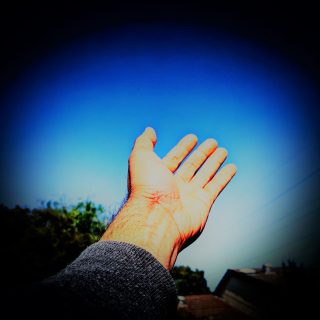

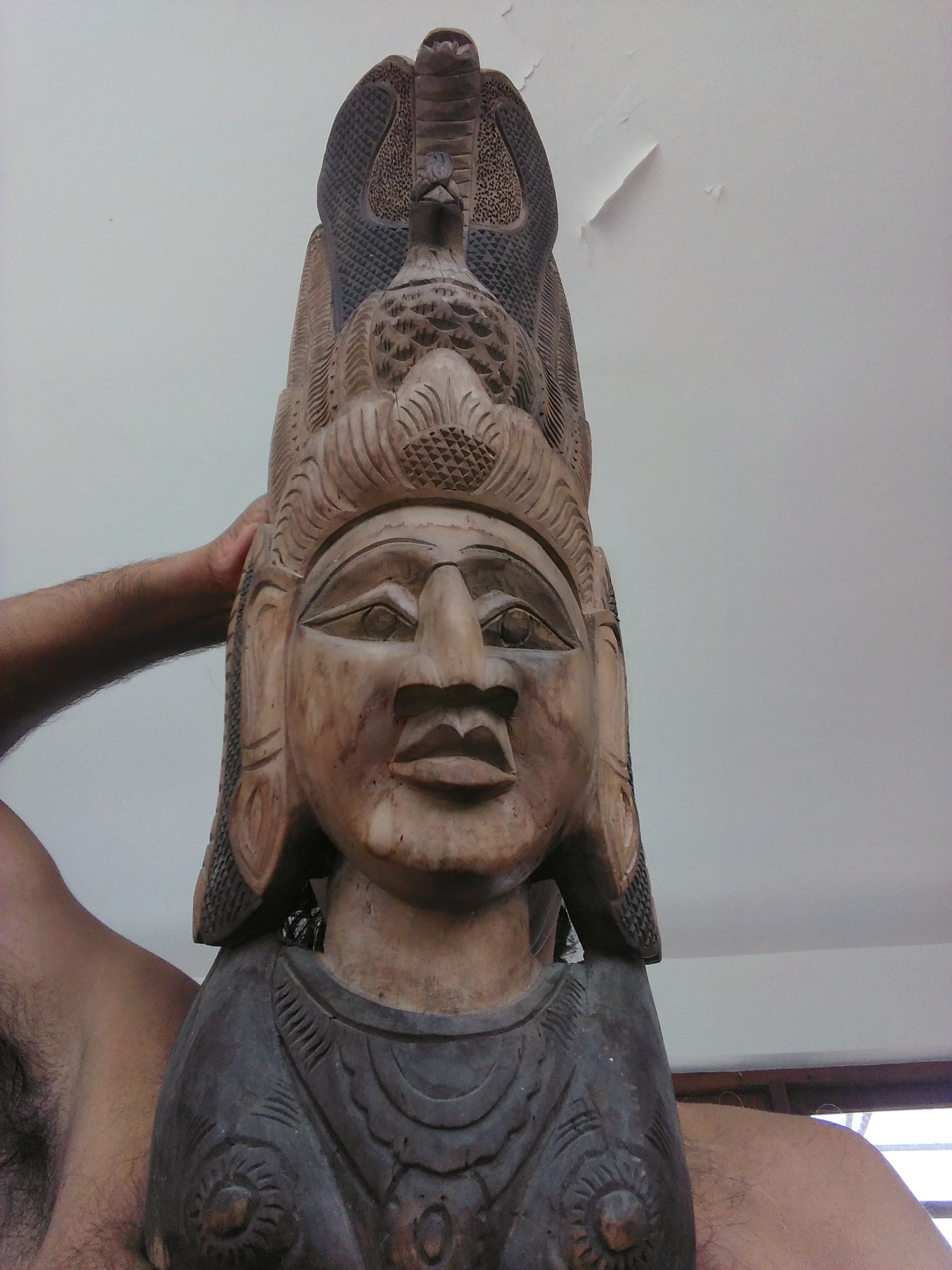
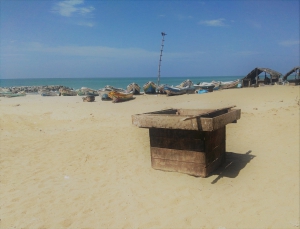

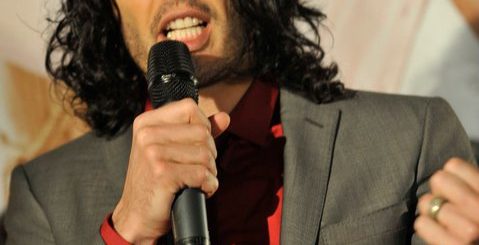
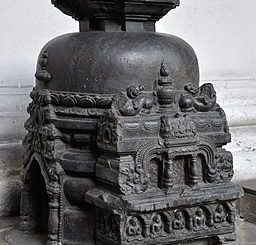


Recent Comments